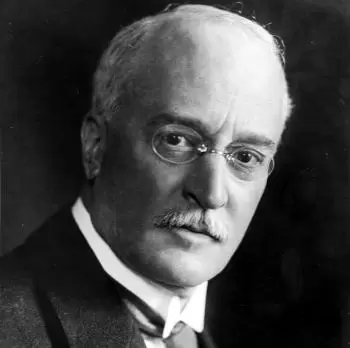
At the end of the 19th century, the world was looking for more efficient alternatives to the steam engine and existing combustion engines. It was in this context that Rudolf Diesel, a visionary German engineer, developed a new type of internal combustion engine that would bear his name.
His invention not only improved energy efficiency, but also enabled the use of different types of fuel, marking a turning point in industry and transport.
Biography of Rudolf Diesel
Rudolf Christian Karl Diesel was born in Paris on 18 March 1858. The son of Bavarian immigrants, he grew up in a time of profound industrial and technological change. In 1870, due to the Franco-Prussian War, his family was forced to leave France and settle in Augsburg, Germany.
From a young age, Diesel showed a great interest in engineering and mechanics, which led him to study at the Polytechnic School of Munich, where he was a disciple of the renowned engineer Carl von Linde, a pioneer in refrigeration technologies.
After completing his training, he returned to Paris as a representative of his teacher's company in the field of refrigeration.
However, his real passion was in developing more efficient engines, which led him to devise a new type of internal combustion engine.
The Invention of the Diesel Engine
Rudolf Diesel went down in history for developing a high-performance internal combustion engine, later known as the diesel engine .
Unlike gasoline engines, the diesel engine operates by compression ignition, without the need for spark plugs. Its innovation allowed for greater efficiency and lower fuel consumption compared to steam engines and gasoline engines of the time.
In 1893, Diesel presented his idea in a book entitled The Theory and Construction of a Rational Engine to Replace the Steam Engine and Internal Combustion Engines Known Hitherto .
Between 1893 and 1897, with the support of the MAN company, part of the Krupp group, he developed the first functional prototype, capable of using vegetable oil (such as palm oil) as fuel. It was later adapted to use mineral oils, such as diesel derived from petroleum.
The diesel engine was introduced at the Paris World's Fair in 1900, where it demonstrated its efficiency and potential for locomotion and power generation. Its adoption marked a revolution in industry, being used in trains, ships, trucks and, later, in electric generators.
Acknowledgements and contributions
His breakthroughs earned him the Order of Merit from the Institute of Mechanical Engineers , recognizing his contribution to the development of engines that could run on a variety of oils, including groundnut oil and refined petroleum.
Diesel was also a staunch advocate of energy self-sufficiency and explored the use of alternative fuels long before petroleum became the primary source of energy.
Beyond his engineering career, Diesel considered himself a social philosopher. In his book Solidarity , he set out his vision of an industrial system where workers could benefit from their own innovations. However, the work was poorly received and sold only 200 copies.
The mysterious death of Rudolf Diesel
The death of Rudolf Diesel remains shrouded in mystery. On 29 September 1913, Diesel boarded a ship bound for England, where he was scheduled to have a business meeting. However, he disappeared on the night of 29–30 September and never arrived at his destination.
Days later, a coast guard boat found a body floating in the sea, but due to the customs of the time, only the body's belongings were collected and the body was returned to the water.
There are several theories about his death. One of the most widely held is that Diesel committed suicide due to financial problems, as he had been facing economic difficulties in recent years.
However, his family always believed that he was killed to prevent his inventions from being used by rival countries in the context of the impending First World War. According to this hypothesis, German agents may have eliminated him to prevent him from selling licenses for his engine to England and France.
Legacy of Rudolf Diesel
Despite his tragic and mysterious death, Rudolf Diesel's legacy lives on to this day.
His engine revolutionised transport and industry, becoming one of the key technologies of the 20th and 21st centuries. His vision of an efficient engine, capable of operating on a variety of fuels, laid the groundwork for the development of modern energy. Today, diesel engines remain essential in sectors such as industry, shipping, power generation and heavy machinery.
Rudolf Diesel didn't just create an engine; he designed a technological revolution that transformed the world and whose impact is still felt today.